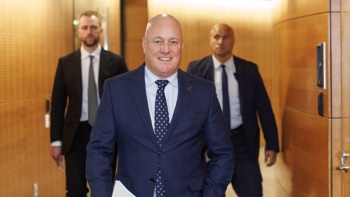Do you know the organ donation wishes of your loved ones?
It may not be a conversation you have ever considered, but it’s one Organ Donation New Zealand are urging all families to have.
In New Zealand there are currently over 550 people waiting for organ or tissue donation.
However, only one percent of people die from brain death, making them eligible to donate.
In 2017, there were 73 organ donors, from which 215 people received organ transplants.
Janice Langlands, Donor Coordinator for Organ Donation New Zealand, told Francesca Rudkin that people need to let their family know they are willing to donate.
She says that ticking the box on your driver’s license is an easy way to make your intentions clear.
“The family will be fully informed about the process and they will be required to sign a consent form. So if families don’t know the wishes, it does give some indication.
She says that most families respect people’s wishes, even if they disagree with it.
Heidi Harty-Eugster is one of those New Zealanders who has benefited from an organ transplant.
Harty-Eugster was born with a genetic heart condition. She has open heart surgery at the ages of 9, 17 and in her thirties before going into heart failure last year and needing a heart transplant.
She told Francesca Rudkin that her life was tough for all of it, but especially in the eight months leading up to her surgery.
“I couldn’t walk 50 metres. I had so much trouble breathing. It was very, very difficult for me. I felt like I was just waiting to die.”
Harty-Eugster says it is amazing to know you are on the list, but the wait is the hardest part.
"The reason for that is you are getting sicker and sicker every day."
She says that she has enjoyed life since having the surgery.
Langlands says that some people need to clarify which organs and tissues they are willing to donate.
She admits that some people may be uncomfortable about the idea of donating certain organs, particularly when it comes to the appearance of the person. Langlands says that there are ways around that, such as with eyes.
“I can reassure people that the eyelid is closed over a plastic prosthesis, which does not alter the appearance of people.”
Harty-Eugster says that while it is a huge relief to receive the life-saving organ, you are aware that another family is suffering.
"That is a really hard thing as a transplant patient to comprehend and come to terms with."
She says that she did carry guilt, but she thinks of it from the view that they were passing away anyway, not because of her.
Langlands insists that all patients are well cared for during the whole process of the organ retrieval.
She says that having an donor registry is not necessary.
“From experience overseas, having a registry is expensive and it’s hard to populate and maintain.”
Harty-Eugster says that she always thinks
"Every milestone I get for me, I feel like I'm connected to the donor."
Take your Radio, Podcasts and Music with you









